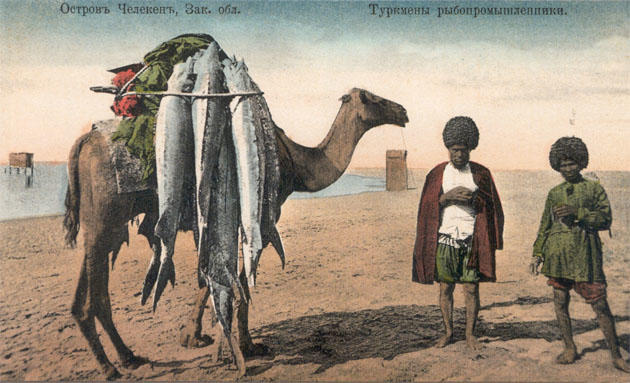Ruslana Bovhyria

Osteuropa-Institut der Freien Universität Berlin
Geschichte Ost- und Ostmitteleuropas
Wissenschaftliche Mitarbeiterin
Garystraße 55
Raum 111A
14195 Berlin
Sprechstunde
Dienstag, 12:00 bis 13:00 Uhr (Präsenz). Bitte melden Sie sich vorab per E-Mail an.
| Seit 4/2023 |
Wissenschaftliche Mitarbeiterin (Promotion) am Arbeitsbereich Geschichte des Osteuropa-Instituts, Freie Universität Berlin |
| 10/2021 - 11/2021 |
Studentische Mitarbeiterin im Projekt „Legacies of Communism“, Leibniz-Zentrum für Zeithistorische Forschung Potsdam |
| 11/2020 - 09/2022 |
Studentische Mitarbeiterin am Lehrstuhl für Soziologie der Wirtschaft, Europa-Universität Viadrina |
| 02/2020 - 08/2021 |
Mitarbeiterin im Projekt „Zwangsarbeit 1939-1945“, Freie Universität Berlin |
| 4/2019 - 7/2020 |
Vorstandsmitglied bei GFPS e.V. |
| 2018 - 2022 |
Studium der Kultur und Geschichte Mittel- und Osteuropas an der Europa-Universität Viadrina samt DAAD-Stipendium (M.A.) |
| 2015 - 2017 | Mitarbeiterin im Projekt „Digitale Topographie der multikulturellen Bukowina“ |
| 2014 - 2018 |
Studium der Geisteswissenschaften und deutscher Philologie an der Jurij-Fedkowytsch-Universität Czernowitz und Universität Leipzig (B.A.) |
Wintersemester 2025/26
31204 (Seminar) Borderlands and Border-Making in Eastern Europe (Di 10-12)
Sommersemester 2025
13248 (Seminar) - Imperium inter pares. Nation und Konfession im Russländischen Reich (Di 12-14)
31201 (Seminar) - Der Krimkrieg. Geschichte und Gegenwart eines europäischen Konfliktes, 1853-2014 (Do 14-16)
Wintersemester 2024/25
31204 (Seminar) - Tides of Empire: Nature and Maritime Resources in the Russian Anthropocene (Di 10-12)
Sommersemester 2024
31201 (Seminar) - Unternehmerkarrieren als "imperiale Biographien": Mobilitätsmuster und industrielle Lebenswege in Russland zwischen Reform und Revolution (Di 14-16)
Wintersemester 2023/24
31202 (Seminar) - Wo liegt das Morgenland? Zentralasien und der Kaukasus im russischen Orient-Diskurs (Di 10-12)
Sommersemester 2023
31204 (Seminar) - Opfer zweier Diktaturen. Zwangsarbeit unter Hitler und Stalin in der osteuropäischen Erinnerung (Do 14-18)
Broad Fields:
-
History of Central Asia under Russian and Soviet rule
-
Economic History of the Russian Empire
-
Environmental History
-
Maritime History
Research Topics:
borders and borderlands, resource frontiers, settler colonialism, legal pluralism, colonial property regimes, colonial water management
Research Projects:
Dissertation Project: Property Frontiers of Empire: Lionozov Enterprise and the Making of the Russo-Iranian Border, 1818-1927
Throughout the late nineteenth century, the Russian Empire remained a layered and hybrid affair, resting on multiple confessional, economic, and political foundations. It was also an empire administered by corporations, companies, and proprietors. By focusing on the history of the Lionozov Enterprise, this book intends to re-evaluate the role of corporate structures in the consolidation of centralized rule across Eurasian borderlands.
The territory under consideration stretches over the densely populated Turkmen coast stitched together by alluvial banks of the Atrek and Gurgen River. Populated by predominantly transient nomadic communities, this complex basin area presents a rich geography to think about the relationship between ecology, extraction, and mobility. In the nineteenth century, the Russian and Qajar Empires and their unwavering will to impose their own ideas of legality met on this watershed. Triggered by rival imperial dynamics, Tehran and St. Petersburg speeded up the process by which this landscape was to be permanently fixed. As both empires embarked on the idea of introducing new proprietary titles upon fisheries, oil, and land, the Atrek’s essential character as a fluid boundary changed. This study aims to recover the transformation of the Russo-Iranian frontier into a new terrain of property and stresses the importance of local go-betweeners and capitalists for understanding the everyday modalities of imperial expansion.
At its core, this book advances the argument that the Russian imperial state sustained its presence in the Central Asian borderlands not by squelching plurality, but rather by maintaining a situation of legal ambiguity with regard to exterritorial ownership practices. The three interrelated chapters will present a case in imperial territorialization by examining various documentary regimes of property in the Atrek watershed. Engaging critically with New Imperial and Environmental History, this study situates the Russo-Iranian border within a broader cross-regional context of South Eurasia and reflects deeper shifts in how the late Tsarist policymakers conceptualized indirect rule, sovereignty, and empire.

Turkmen fishermen of the Cheleken Island, 1900-1910. Source: Gordon Edmondson Private Collection, Vancouver Island University
Book reviews:
Laura Elias: Der imperiale Blick. Die indigene Bevölkerung Zentralasiens in der ethnographisch-anthropologischen Fotografie des Russländischen Imperiums, Göttingen 2024, in: H-Soz-Kult, 10.10.2025, https://www.hsozkult.de/publicationreview/id/reb-151861
Olena Palko, Manuel Ferez (Hg.): Ukraine's Many Faces: Land, People, and Culture Revisited, Bielefeld 2023, in: CEU Review of Books, April 2024, https://ceureviewofbooks.com/review/a-bold-new-look-at-ukraines-history-people-and-culture/
Boris Ganichev: Integrating Imperial Space. The Russian Customs System in the 19th Century, Göttingen 2023, in: H-Soz-Kult, 27.10.2023, https://www.hsozkult.de/review/id/reb-135155?title=b-ganichev-integrating-imperial-space
Online publications
Tracing Commodities, Capitalists, and Nomads Across the Russo-Persian Border: On the Uses of Space in and beyond the Central Asian Archives. The Decentered Archive, 19 November 2025. Retrieved from https://decentarch.hypotheses.org/360




